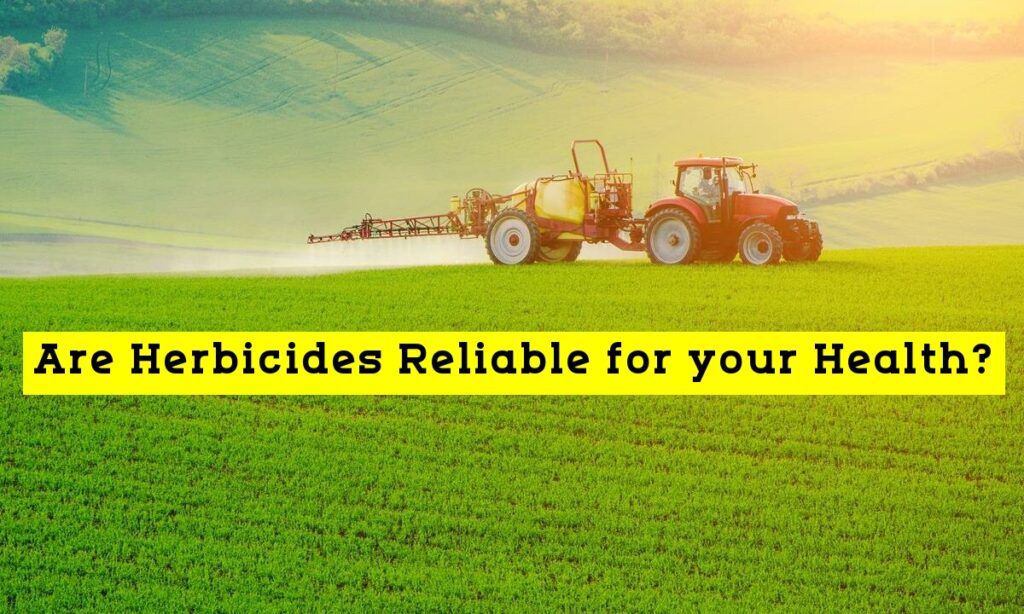Herbicides are frequently employed to safeguard our crops while they are growing. What impact does ingesting these substances have on your health, though? And if you can’t eat organic, how can you go about avoiding certain foods?
Herbicides – Use Less If You Want to Live Long
My grandmother had Non-Hodgkin’s lymphoma over 20 years ago (she liked to garden and used herbicides and pesticides) and, at the time, was given 3 months to live by her doctors. My aunt, her daughter, put her on a diet that she researched, which involved certain mushroom extracts. My grandma also went to MD Anderson Cancer Center in Texas and did not eat a lot of meat (glyphosate/glutamine issues, I think). Her cancer eventually went into remission, and 20 years later, she kept up with her nutrition.
Contrast this with my father, who had different cancers for 20 years and died during a hip transplant due to kidney failure. Poor diet and listening to doctors who were not educated on proper nutrition or diabetes other than handing out prescription medication. Some doctors and surgeons made a lot of money off my father’s illnesses. It’s sad that he used to tell me to make sure to pay for the best health insurance I could find. Health decisions and organic (grass-fed or grass-finished) foods are important. Longevity does not always equate to being healthy.
On persistent chemicals, herbicides as well as pesticides, I donate plasma and platelets routinely. Starting over 2 years ago, I’ve donated about 7 plasma volumes. A side effect is that my burden of persistent chemicals goes down a lot over time, per at least one study. This may not affect herbicides or pesticides on the microbiome, though, as this happens in the gut prior to transport across the intestinal wall.
For daily blueberry consumption, now would you decide between fresh organic blueberries or frozen non-organic (which will be freshly frozen and not flown around the globe!)? The blueberries won’t be grown traditionally in either case.
I noticed that organic food is also sometimes much more flavorful. I buy these locally grown carrots from Chi Farms, and they are so fabulous. I have bought organic carrots from a large commercial grower, and they completely lack flavor, so even some organic products from large growers are not very good. It must have to do with the soil they are grown in. I also love local Washington-grown honey crisp apples because of their fabulous flavor and crispness.
A. So there may be an impact on the gut microbiome. But is this necessarily a problem? Do we have data that shows differential morbidity and all-cause mortality in these two groups? B. A possible 10% increase in cancer? Do we have data to support that assertion? And what is the impact on all causes of mortality? C. NHL. This leads to about 5,000 deaths per year in the UK, or roughly 1 in every 100 deaths. Given a 10% increase, maybe 1 in every 90 deaths.
D. Are more nutrients more beneficial? Or will our bodies just excrete any excess? Will more polyphenols already yield a benefit, or can we max out on polyphenols? E. If plants grow too fast, they’ll have a really bad immune system. Would this apply to organic crops grown “traditionally” with copious amounts of chicken and cow excrement spread in and on the soil? F. Assuming the world does turn back to traditional organic farming (whatever those words mean), can the world feed itself?
I would like to eat all organic fruit and vegetables, but the cost prevents me. As for growing my own with the unpredictable weather, it’s not easy. That and the number of slugs who attack my vegetables, I couldn’t afford organic. Inflation has pushed me out of the market. In the UK, the wealthy live longer than the poor, and this is another step towards that division.

